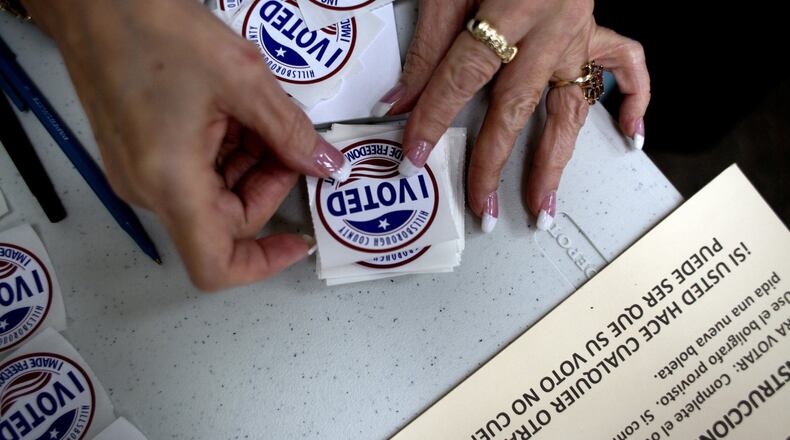In 2016, over 6 million Americans were denied the right to participate in our democracy because of a prior felony conviction. That same year in Georgia, an estimated quarter-million people were barred from voting, despite that the majority had completed their sentences and were living and working in their communities again. Research suggests people who actively engage in the democratic process are more likely to adopt the shared values of their broader community, and that felony disenfranchisement increases recidivism.
Under the leadership of Gov. Nathan Deal and many others, Georgia has become a state that believes in second chances and embraces redemption. Yet we have not addressed the reality that we continue to exclude and punish Georgians by denying the right to vote to people convicted of all felony offenses.
This year, a bipartisan group of state senators will convene to revise the list of disqualifying felonies and determine how to expand voting rights to certain people convicted of non-violent felonies.
Georgia’s Constitution bans anyone from voting who is completing a sentence for a felony involving moral turpitude (completing a sentence includes those on probation or parole). The state has not created a list of crimes defined as those involving “moral turpitude,” which means that in practice, every person currently serving a felony sentence in Georgia is disenfranchised, including people convicted of drug possession and theft. Worse is that outstanding fines, fees and other financial obligations prevent sentence completion, meaning that these debts are essentially modern-day poll taxes that keep otherwise eligible Georgians from voting. Georgia also has the dubious distinction of having the highest number of people on probation or parole in the country. As of 2016, there were 410,964 people on probation in Georgia. One in 13 are under some form of correctional control.
Stripping people of their right to vote is one of the last vestiges of a concept called Civil Death, a product of English common law that traveled across the Atlantic with British colonizers. The concept was straightforward: if you were convicted of felony offenses, you were deprived of your rights under the law. The concept is strikingly medieval, so it’s not surprising that Civil Death had largely disappeared from the United States by the mid-20th century. There was just one glaring exception: felony disenfranchisement.
In the post-Reconstruction period, as poll taxes and literacy tests were weaponized in an attempt to keep Black Americans from voting, a number of Southern states, including Georgia, moved to further codify felony disenfranchisement. This was done by targeting offenses which they believed Black people could be successfully prosecuted for and ensuring that a conviction for any of those offenses would result in permanent disenfranchisement. In Alabama, for example, the author of the state’s disenfranchisement provision “estimated the crime of wife-beating alone would disqualify 60 percent of the Negroes,” resulting in the final policy, under which a man would be disenfranchised for beating his wife, but not for murdering her.
The impact of the racist underpinnings of felony disenfranchisement has been devastating: more than 2.2 million Black Americans are disenfranchised today, or roughly 7.4% of the black adult population. For non-blacks, that number is 1.8 %.
More than three-quarters of the millions of disenfranchised Americans are now free and living and working again in their communities. They’re people like Leon Brown, who is entrusted with driving a tractor-trailer in the Savannah seaport — one of the busiest in the world — yet not entrusted with the right to vote. “I would like to vote,” Mr. Brown told the Associated Press. “I go off and do the time, come back out and they hold me hostage again because I’m on probation.”
If the goal of our criminal justice system is indeed to promote public safety, rehabilitate people convicted of crimes, and support people as they return home to their communities, there is simply no justification for continuing to deny someone the right to participate in the democratic process. Felony disenfranchisement serves only to further alienate and penalize formerly incarcerated people — who already face a myriad of challenges returning to their communities — and it weakens our democracy.
Restoring the right to vote is in alignment with our belief in redemption and rehabilitation, and it is a natural next step for criminal justice reform in Georgia. It is in our best interests to engage formerly incarcerated people in productive, meaningful relationships with their communities. Restoring the right to participate in shaping that community is one of the most powerful ways to do so.
Sara Totonchi is executive director of the Southern Center for Human Rights.
About the Author
Keep Reading
The Latest
Featured



